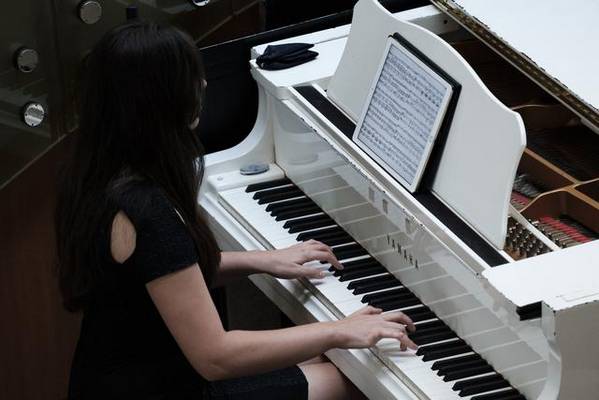大连英语培训考研英语百家国际部考研英语语法知识点整理

参加考研英语的考试,学会这几个语法,不说横行霸道,且说稳打稳扎。下面是大连百家雅思托福小百老师给大家整理的考研英语语法,供大家参阅!
考研英语语法:倒装句
完全倒装
1.表示方位或时间的副词或介词短语位于句首,主语是名词,符合上述两个条件,主语和谓语可完全倒装。标志词为:here, there, up, down, in, out, away, off, then, on the hill, in the river等。倒装结构:“主语+谓语”变为“谓语+主语”,成分形式没有变化,句子内容不增不减。
【例句】
the soccer fans rushed out.
掌握英语从听开始,海量免费英语资料尽在普特英语听力网www.putclub.com
=out rushed the soccer fans.
球迷们冲了出去。
2.such位于句首时,主谓完全倒装。
【例句】such was norman bethune, a noble person, a pure person, a moral person, and a vulgar person.这就是白求恩,一个高尚的人,一个纯粹的人,一个有道德的人,一个脱离了低级趣味的人。
部分倒装
部分倒装指将谓语的一部分如助动词或情态动词倒装至主语之前,而谓语动词无变化。如果句中的谓语没有助动词或情态动词,则需添加助动词do, does或did,并将其置于主语之前。 英语句子的倒装一是由于语法结构的需要而进行的倒装,二是由于修辞的需要而进行的倒装。前一种情况,倒装是必需的,否则就会出现语法错误;后一种情况,倒装是选择性的,倒装与否只会产生表达效果上的差异。倒装句是最突出、最常见的修辞效果就是强调。
1.only引导的倒装句
only+状语+特定的动词+主+谓
特定的动词包括:
助动词:do, does, did, have, has, had
情态动词:can, could, shall, should, will
be动词:am, is, are, was, were
【例句】
because you gave someone a ring, i stumbled.
=only because you gave someone a ring did i stumble.
因为你打了个电话,所以我绊倒了。
2.否定词提前至句首主谓部分倒装
结构:否定副词+特定动词+主语+谓
语
1)否定副词
常用否定副词:not, no, never, neither
特殊否定副词:seldom, few, little, barely, hardly, scarcely, rarely, in vain
2)特定动词
助动词,情态动词,be动词
①no sooner?than, scarcely/hardly?when表示否定意义的词位于句首时常用部分倒装
【例句】
when i saw you for the first time, i fell in love deeply with you.
=no sooner had i seen you for the first time than i fell in love deeply with you.
=hardly had i seen you for the first time when i fell in love deeply with you.
当我看见你的时候,就深深地爱上了你。
②not only+特定动词+主语+谓语,but also+主语+谓语
【例句】
internet has changed our living habit, and enhanced the efficiency of the government.
=not only has internet changed our living habit, but also enhanced the efficiency of the
网络不仅改变了我们的生活习惯也提高了政府的工作效率。
3.so?that结构倒装句:so为副词,副词修饰动词、形容词以及副词本身。因此有两种形式的so?that倒装
1)主语+ be+ so+表语(形容词)+that+从句(结果状语从句)
变倒装:so+表语(形容词)+be+主语+that+从句(结果状语从句)
【例句】
the food price is so high that we cannot afford any more.
=so high is the food price that we cannot afford any more.
菜价如此之高,我们都承受不起。
2)主语+谓语+so+副词(状语)+that+从句(结果状语从句)
变倒装:so+副词(状语)+特定动词(助动词或情态动词)+主语+谓语+that+从句(结果状语从句)
【例句】
you said your phone number so fast that i hardly wrote it down.
=so fast did you say your phone number that i hardly wrote it down.
你刚才电话号码说得太快了,我没有记录下来。
4.让步状语从句
1)表语倒装
although主语+系语+表语,主句
变倒装:表语+as/though+主语+系语,主句
【例句】
although many consumers are clever, they are always deceived by advertisements.
=clever as/though many consumers are, they are always deceived by advertisements.
尽管很多消费者很聪明,但还是老上广告的当。
2)谓语动词的倒装
although+主语+特定动词+谓语,主句
变倒装:谓语+as/though+主语+特定动词,主句
【例句】
although you may object, i’ll go.
=object as you may, i’ll go.
纵使你反对,我也要去。
3)状语的倒装
although主语+谓语+状语,主句
变倒装:状语+as/though+主语+谓语,主句
【例句】
although i like paris much, i couldn’t live there.
=much as i like paris, i couldn’t live there.
尽管我喜欢巴黎,但我不能住在那里。
考研英语语法:强调句
强调句是一种修辞,是人们为了表达自己的意愿或情感而使用的一种形式。通过各种方式对句子中的某个部分进行强调,从而起到修辞的作用。今天我们就来学习一下强调句的相关知识。
英语常用的强调结构是“it is (was)+被强调部分(主语、宾语或状语)+who (that)?”。一般说来,被强调部分指人时,用who;指事物时用that,但that也可以指人。在美国英语中指事物时常用which来代替that。
1.简单句与强调句型之间的互换
简单句:主语+谓语+宾语+定语+状语+补语→it is/was+被强调部分+that/who+其他部分被强调部分:只限于主语、宾语或状语
who:强调主语是人,并仅限于主语
【例句】mr. wang encountered the sixth girlfriend in his wife in comrade street at the age of five.王先生五岁那年在同志街邂逅了他一生当中的第六个女朋友。
(1)强调主语
it wasmr. wangwho encountered the sixth girlfriend in his wife in comrade street at the age of five.
(2)强调宾语
it wasthe sixth girlfriend in his lifethat mr. wang encountered in comrade street at the age of five.
(3)强调地点状语
it wasin comrade streetthat mr. wang encountered the sixth girlfriend in his wife at the age of five.
(4)强调时间状语
it wasat the age of fivethat mr. wang encountered the sixth girlfriend in his life in comrade street.
2.如何强调谓语
借助助动词强调谓语,助动词包括do/does/did,根据不同的时态和不同的主语人称有不同选择,助动词介入时谓语动词要变成原形。
(1)主语为第一人称、第二人称或复数主语,时态为一般现在时,用do。
【例句】
i appreciate your help.
i do appreciate your help.
(2)时态为一般现在时,用did。
【例句】
i made a dream last night.
i did make a dream last night.
(3)主语为第三人称或单数主语,时态为一般现在时,用does。
【例句】
she becomes a man.
she does become a man.
3.真题中强调句的解析
it is this implicit or explicit reference to nature that fully justifies the use of word garden, though in a“liberated”sense, to describe these synthetic constructions.
译文:虽然(说这话)在某种意义上说有点随性,但正是这种对自然或明或暗的描述,才使得用“花园”一词来形容这些人工建筑显得那么贴切。
句式还原:
(1)it is?that?(强调句)
(2)被强调部分this implicit or explicit reference to nature在that引导的从句中充当主语。 →将被强调部分还原于从句变为简单句:this implicit or explicit reference to nature fully justifies the use of word garden to describe these synthetic constructions.
强调句属于一种特殊句式,虽不算太常见,但在阅读和翻译中也会时有出现,考生也应认真复习,不能忽视。





